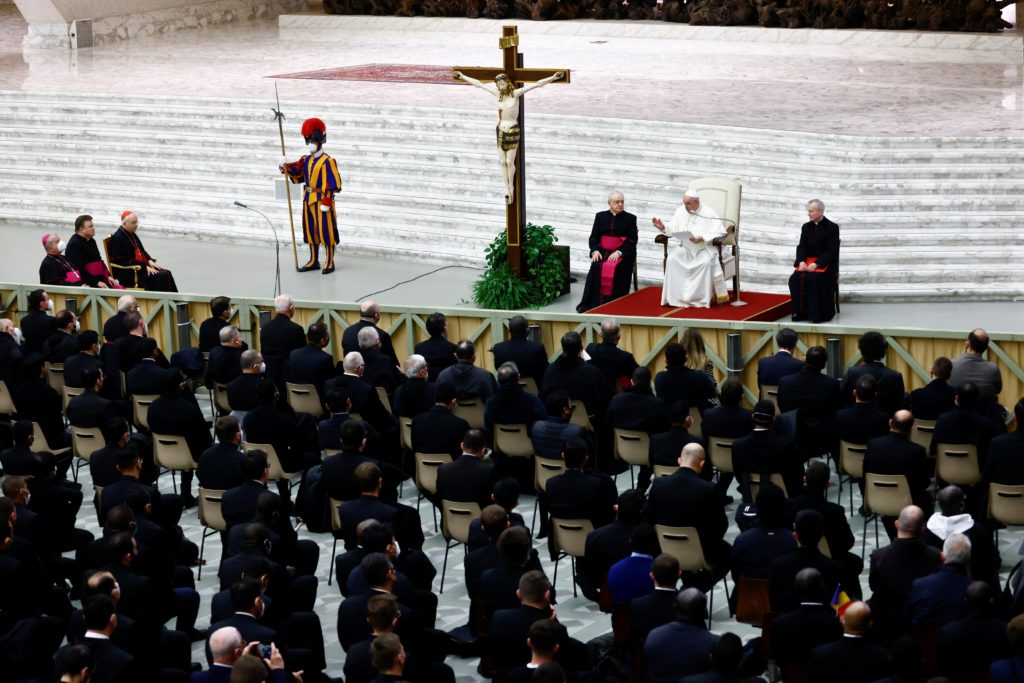Confession helps the penitent and also the confessor, who has the opportunity to be like the father of the prodigal son and experience the joy of seeing a child return home, Pope Francis said.
"By generously dispensing God's forgiveness, we confessors collaborate in the healing of people and the world; let us cooperate in the realization of that love and that peace every human heart yearns for so intensely," he said in a speech March 25 to priests and seminarians attending an annual conference on the internal forum at the Vatican.
"Let us contribute, permit me to say, a spiritual 'ecology' of the world," he said.
Absolving someone of their sins tells them that they are "precious, precious for God" and this, he said, "is a very powerful medicine for the soul and also for the psyche."
The course on the internal forum was sponsored by the Apostolic Penitentiary, a Vatican court dealing with matters of conscience. The audience was held in the Vatican's Paul VI hall, with some 800 priests participating.
In his address, the pope expanded on what he said in a February television interview that forgiveness is "a human right."
Forgiveness is "what every human heart yearns for most deeply, because, after all, to be forgiven means to be loved for who we are, despite our limitations and our sins," he said.
It is also "a 'right' in the sense that God, in the paschal mystery of Christ, gave it in a total and irreversible way to every person willing to welcome it with a humble and repentant heart," the pope said.
The pope underlined the three essential elements that must mark the ministry of every confessor: welcoming, listening and accompaniment. These are the "three faces of love" and joy, he added.
Being welcoming, he said, helps penitents approach the sacrament of reconciliation "with the right spirit, by not being withdrawn into themselves and their sin, but by opening themselves up to God's paternity, the gift of grace," he said.
Being welcoming reflects the level of a priest's pastoral care and love, and it produces great fruits for the penitent and the confessor, "who experiences his paternity, like the father of the prodigal son, full of joy for the return of his son."
He asked whether priests and seminarians show "this welcoming and joy" no matter the time of day or night, if they create "an atmosphere of peace" and are accommodating, letting people talk it out.
Listening requires patience, care and being open and available to people, he said. A confessor must set aside his own opinions and world views and truly open his heart and mind to what the penitent is saying or trying to say, he added.
It is thanks to their faith that men and women open their hearts up to a confessor, he said, "therefore, they have a right to be listened to with faith and with that charity that the father reserves for his children and this brings joy!"
Accompaniment, the pope concluded, means the confessor "is not the master of the other's conscience," and he cannot decide for the other. The confessor uses as much prudence, discernment and love as possible in order to see "the truth and will of God in the concrete experience of the penitent."
"Everyone needs forgiveness, that is, to feel they are loved as children of God the father," he said.

